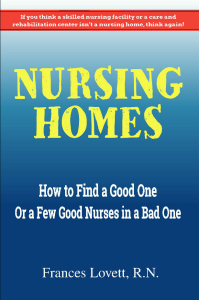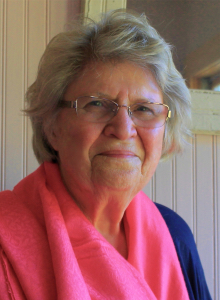About The Book
Nursing Homes: How to Find a Good One Or a Few Good Nurses in a Bad One addresses the reality of today’s nursing home care: Good nursing homes are scarce, thus many of our loved ones reside in facilities providing bad care. This guide offers an insider’s solution—find a few good nurses and nurses’ aids.
The book offers insight into identifying a good nursing home and explains why a good nursing home today may be a bad nursing home tomorrow. The myth that a skilled nursing facility, a care and rehabilitation center, nursing center, memory care, etc., offer care superior to a nursing home is laid to rest. Directions on how to find each facility’s state inspection reports and Medicare’s database aid in side-by-side facility comparisons and objective looks at slick marketing claims.
The value of this guide is its simple, direct approach to assuring that a loved one receives the best of care in any facility. Family, friends and the resident are given the tools needed to identify reasonable care and advocate until it is provided. Daily routines affecting each resident are approached in detail, for example, mealtimes, medications, confusion, restraints, incontinence, resident’s rights, and more. Each chapter stands alone to provide a quick reference when problems arise.
Payment is an issue with every nursing home admission. The “Understanding Payment” chapter encourages the reader to take control of their own resources whether private payment, insurance, Medicare, Medicaid or veterans benefits. Paying more at an up-scale facility never assures better care. The author explains why a plain vanilla nursing home may be a better choice for your loved one.

